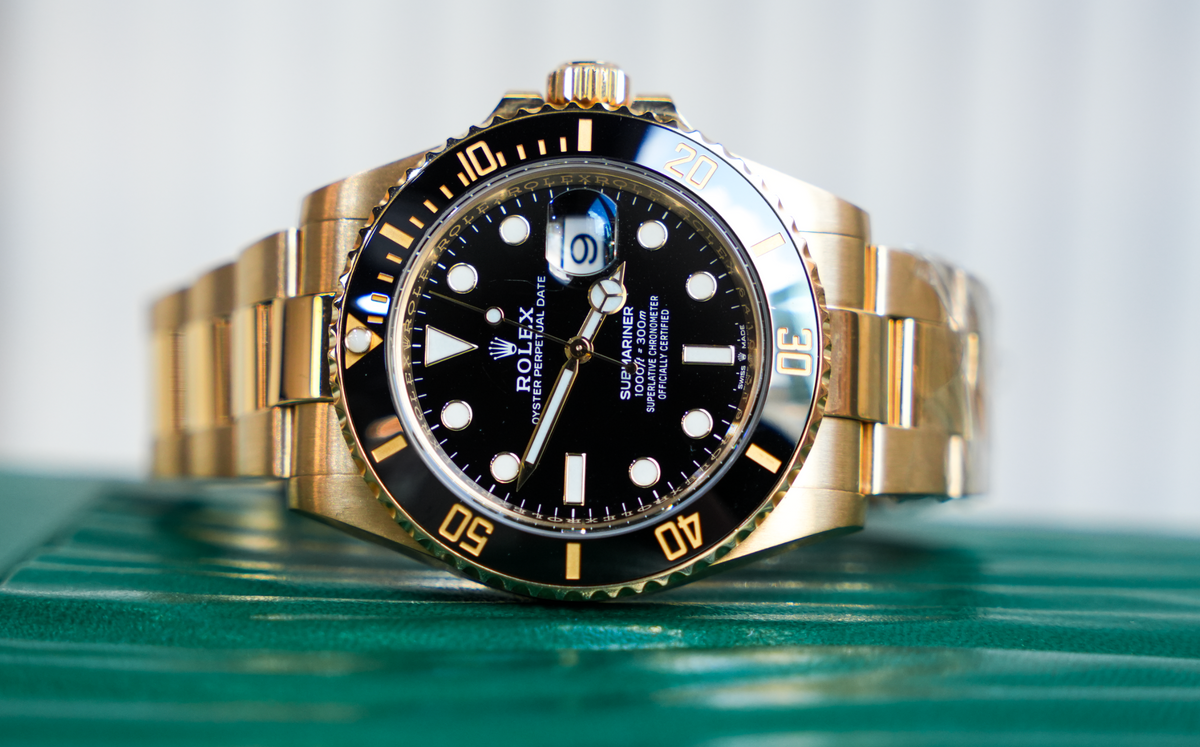
39% U.S. Tariff on Swiss Watches: What Collectors and Buyers Need to Know
|
|
Time to read 4 min
|
|
Time to read 4 min
The 39% tariff on Swiss watches , effective August 7, 2025, is driving up prices on luxury timepieces from brands like Rolex , Omega , and Patek Philippe . This import duty increases costs for retailers, which is expected to raise Swiss watch prices in the U.S. by 12–22% . Collectors who act before the price hikes can still secure pre-tariff inventory at current pricing from trusted sources like JD Watches New York .
The U.S. government’s tariff on Swiss-made goods 2025 is part of a larger trade policy shift. For luxury watches, the impact is immediate:
Import duties add directly to landed cost – Retailers must decide whether to absorb some of this cost or pass it fully to consumers.
Applies to all Swiss brands – From ultra-luxury manufacturers like Patek Philippe to everyday luxury names like Tissot, the increase applies across the board.
Impacts both new and certain pre-owned imports – If a pre-owned piece is imported post-August 7, it still carries the tariff, meaning only U.S.-stocked pre-owned watches avoid the new costs.
When a watch is imported from Switzerland, U.S. Customs now applies the 39% duty on its declared value. For a $10,000 watch, that’s an additional $3,900 before shipping, insurance, or retailer markup. Brands and authorized dealers must decide whether to absorb part of the 39% tariff on Swiss watches cost or pass it on entirely to consumers — most are choosing the latter.
Swiss watchmaking depends on precision components , many of which have become more expensive due to global supply chain disruptions and rising raw material prices (steel, gold, platinum, and sapphire crystal). Even without the tariff, brands were already planning modest price adjustments for 2025.
Popular references like the Rolex Submariner , Omega Speedmaster , and Patek Philippe Nautilus already had waiting lists before the tariff. With higher costs discouraging some buyers, brands may focus on allocating fewer pieces to the U.S., further driving scarcity — and pushing more buyers into the pre-owned market .
Fluctuations in the Swiss franc against the U.S. dollar can also affect prices. A strong franc makes Swiss exports more expensive, adding yet another layer to the 2025 price climb.
Luxury brands often use pricing not only to reflect costs but also to maintain brand perception. By raising prices in step with the tariff, brands protect their exclusivity and avoid devaluing their image — especially for collectors who view these watches as investment pieces .
For anyone considering a new Rolex , Omega , or Patek Philippe , pre-tariff inventory is now the most cost-effective path. Once current stock is sold, all new arrivals will carry the increased cost. Buyers who wait could easily pay thousands more for the exact same watch in a matter of months.
Analysts forecast that the price impact of 39% tariff on Swiss watches will vary by brand and model:
Flagship models like the Rolex Submariner or Omega Speedmaster could see double-digit increases, making early purchases a strategic move for collectors.
Entry-level Swiss watches might also rise sharply, narrowing the gap between mid-tier and high-tier pricing, and potentially shifting buyer interest toward alternative brands.
Limited editions may become even harder to get as collectors rush to purchase before the price climb, further tightening supply and pushing resale values higher on the secondary market.
Different brands are approaching the tariff in unique ways:
Rolex – Gradual price adjustments, maintaining prestige without sudden jumps.
Omega – Quicker adjustments due to their global distribution model.
Patek Philippe – Possible surge in pre-owned Patek Philippe demand as new models grow more exclusive.
Independent brands – Smaller makers may limit U.S. supply due to cost pressures.
The new pricing environment boosts pre-owned and vintage appeal:
Pre-owned Rolex deals in New York offer better value compared to new stock.
Vintage timepieces could appreciate faster as retail prices climb.
Investment security – Swiss watches historically hold or grow in value over time.
Move Quickly on Pre-Tariff Stock – Once it’s gone, prices will reflect the tariff.
Consider Pre-Owned – Excellent craftsmanship at a more accessible price.
Diversify Brands – Explore German, Japanese, or microbrand luxury alternatives.
Stay Updated – Follow JD Watches for timely market and pricing updates.
At JD Watches, we guide clients through market changes with:
Curated collections – Rolex , Omega , Patek Philippe , Audemars Piguet, and more.
Transparent pricing – Including any tariff implications.
Expertly vetted pre-owned pieces – Available in our pre-owned collection .
Personalized service – Tailored advice for each collector’s goals.
The 39% tariff on Swiss watches is more than a temporary policy — it may reshape the U.S. luxury watch market for years to come. Acting now allows you to secure your desired timepiece before prices shift again. Whether you’re adding a Rolex to your collection, investing in an Omega classic, or finding value in a pre-owned Patek Philippe , the right time to buy is before these changes fully take hold.
Secure your future heirloom today — your next watch is waiting at JD Watches New York .

